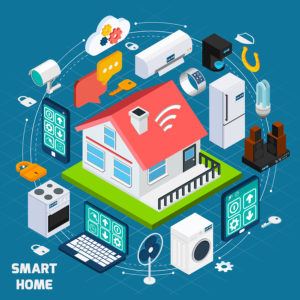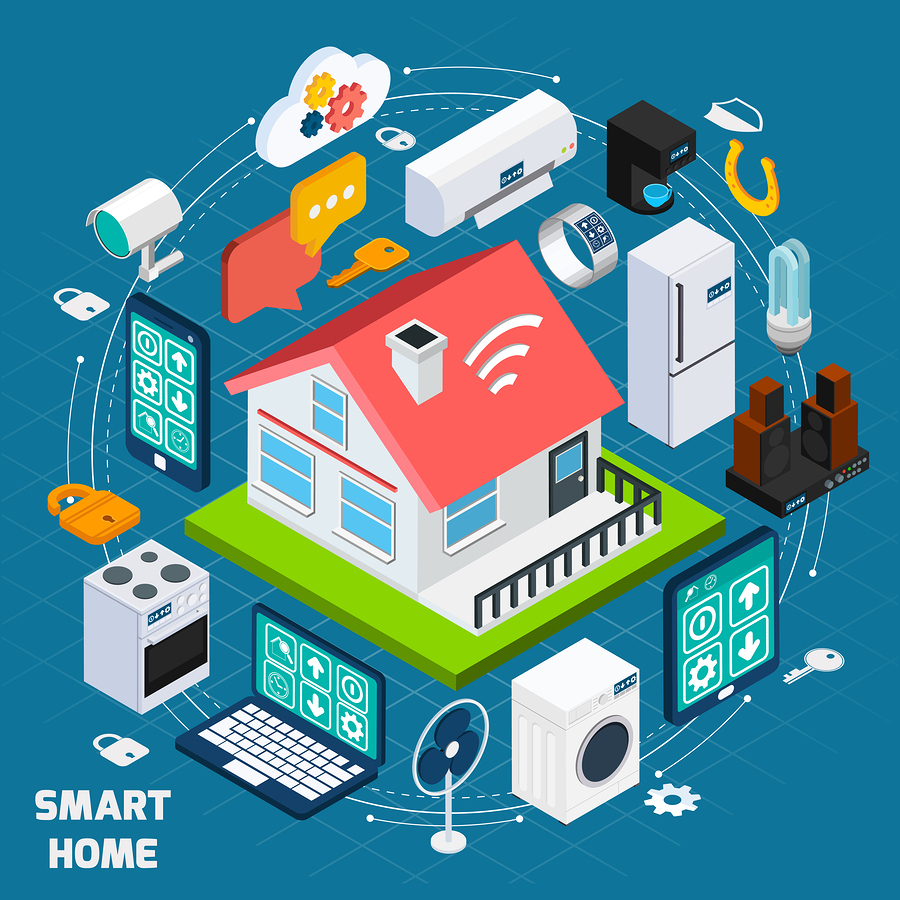Smart smoke and carbon monoxide detectors, wireless doorbell cameras, and keyless entry are among the top 10 smart home technologies for homeowners age 50 and older, according to new research from The Hartford and the MIT AgeLab.
“Smart home technology can make life easier for people of all ages, but it can be especially beneficial to those ages 50 and older as their lifestyles change,” said Jodi Olshevski, gerontologist and executive director of The Hartford Center for Mature Market Excellence. “Keyless entry is convenient for active households, especially if there are multiple generations living under one roof. Wireless doorbell cameras can provide safety and peace of mind to families who travel or to individuals who live alone.”
 The research consisted of an extensive review of 25 technologies by a panel of experts on housing, aging and technology. These reviews were used to identify the top 10 technologies that can make life easier, help with home maintenance, and enhance safety and security for homeowners over the age of 50. The top 10 technologies include:
The research consisted of an extensive review of 25 technologies by a panel of experts on housing, aging and technology. These reviews were used to identify the top 10 technologies that can make life easier, help with home maintenance, and enhance safety and security for homeowners over the age of 50. The top 10 technologies include:
1. Smart smoke and carbon monoxide detectors
2. Wireless doorbell cameras
3. Keyless entry
4. Automatic lighting
5. Smart water shut off valves
6. Smart home security systems
7. Smart outlets/plugs
8. Smart thermostats
9. Water and/or mold monitoring sensors
10. Smart window blinds
“How we live has an enormous impact on our happiness and well-being,” said Joseph F. Coughlin, Ph.D., director of the MIT AgeLab. “Smart home technologies offer innovative opportunities to make living easier and to help people protect their homes.”
Smart Home Technology Aids Home Maintenance
In addition to the expert panel, The Hartford and the MIT AgeLab surveyed homeowners age 50+ to gauge their perspectives on smart home technology. The survey found that their No. 1 concern about their home is maintenance. However, maintenance was not their top choice when considering the benefits of smart home technology. They cited safety and security (49 percent), saving energy (47 percent), and making day-to-day life easy and convenient (33 percent) as the top three benefits.
“As a homeowner’s insurer that specializes in the mature market, we pay close attention to new smart home technologies and what our customers are interested in,” said Olshevski. “While many homeowners associate this technology with safety and convenience, smart home devices can also help protect their homes and prevent situations that can result in costly repairs, such as burst pipes or water leaks.”
Some of the technologies on the list that can help avoid potential problems before property damage occurs and may help avoid costly repairs, include:
- Smart smoke and carbon monoxide detectors;
- Smart water shut off valves;
- Smart thermostats;
- Water and mold monitoring sensors.
According to the survey, just over half (51 percent) of homeowners over the age of 50 either have smart home technology or are interested in buying it. Of those who do not currently have smart home technology but plan to purchase it or are interested in getting it, about half (49 percent) are willing to spend between $101 and $500 on it in a year.
When considering smart home technology, The Hartford and the MIT AgeLab recommend that mature homeowners:
- Research what’s out there and the benefits of the technology;
- Determine what might work best for your home and family;
- Visit www.thehartford.com/smarthome to take a tour of a digital smart home and learn more about how these technologies work.
This recent study builds on many years of research by The Hartford Center for Mature Market Excellence focused on empowering 50+ homeowners to maintain their safety, independence and well-being.
Methodology
The Hartford and the MIT AgeLab identified a list of experts who were professionals with expertise in the housing, technology and aging. The panel of nine experts completed questionnaires reviewing 25 different smart home technologies. The results of these reviews were used to identify the top 10 technologies with benefits for 50+ homeowners.
YouGov conducted an online survey among 1,092 homeowners in the U.S. between Oct. 6-10, 2016 of whom 728 were 50+. Margin of error for this study is +/- 3.6 percent at the 95 percent confidence level.
Source: The Hartford
Was this article valuable?
Here are more articles you may enjoy.


 Hackers Hit Sensitive Targets in 37 Nations in Spying Plot
Hackers Hit Sensitive Targets in 37 Nations in Spying Plot  Portugal Rolls Out $2.9 Billion Aid as Deadly Flooding Spreads
Portugal Rolls Out $2.9 Billion Aid as Deadly Flooding Spreads  US Will Test Infant Formula to See If Botulism Is Wider Risk
US Will Test Infant Formula to See If Botulism Is Wider Risk  Navigators Can’t Parse ‘Additional Insured’ Policy Wording in Georgia Explosion Case
Navigators Can’t Parse ‘Additional Insured’ Policy Wording in Georgia Explosion Case 